
Racette an unmissable Elle in O18's Ne Quittez Pas
ReviewOpera patrons in formal wear waiting in line to enter the Theatre of Living Arts for Saturday night’s premiere of Ne Quittez Pas were in humorous contrast to the rock club surroundings and the other nearby South Street urban establishments. The venue has been transformed into a late 70’s music club, complete with French rock music playing through the speakers. Opera Philadelphia’s new production consists of an original prologue consisting of Poulenc art songs, and inspiration from Cocteau’s Les Enfants Terribles, and poems of Apollinaire, followed by a more well-known La voix humaine.
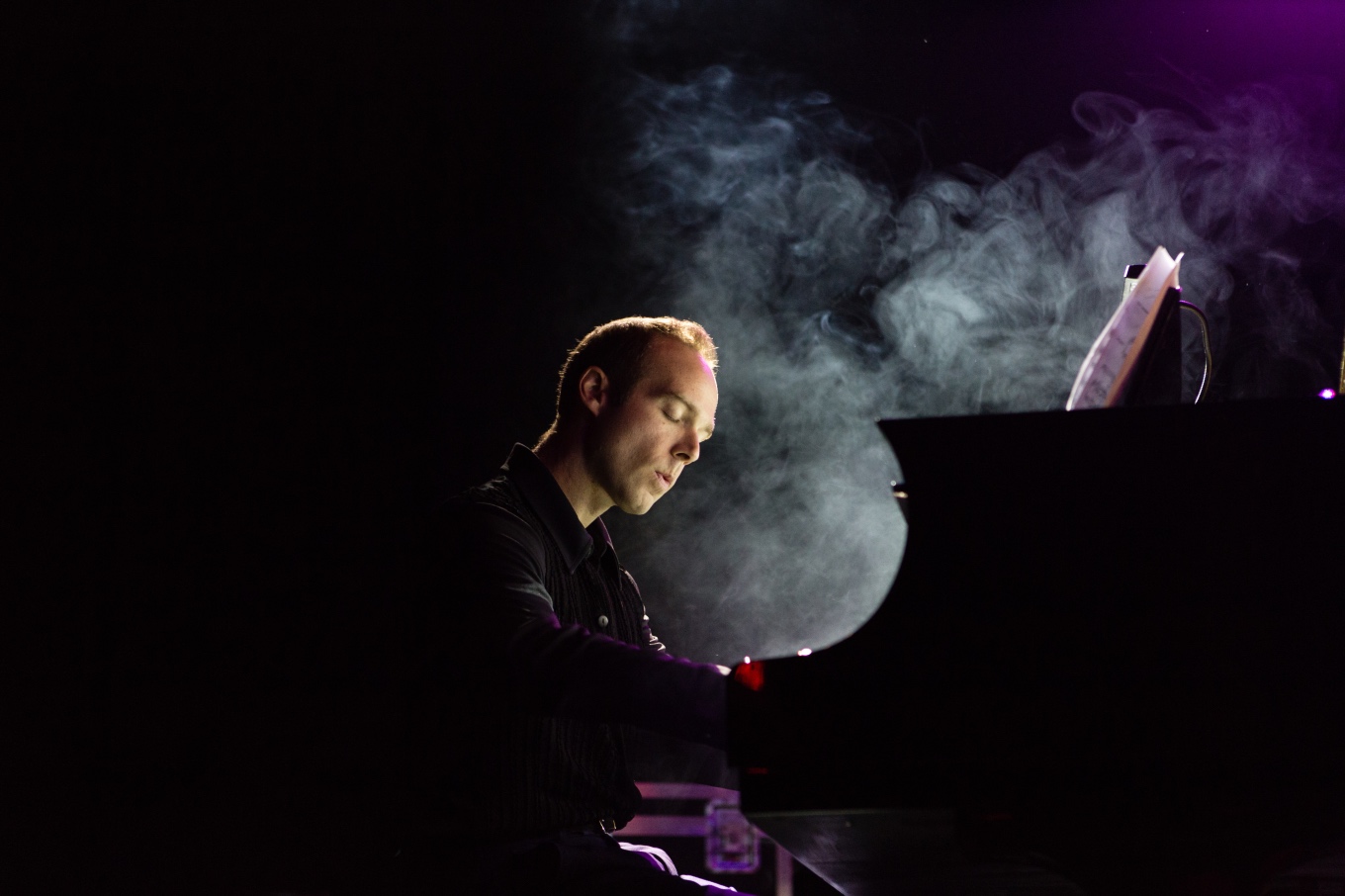
The prologue consists of three actors, a pianist, and just one opera singer. The drama starts with the club owner, played by Ames Adamson, shutting down the place and nagging the pianist, Christopher Allen, to be sure to lock up on his way out. Soon after he leaves, a raucous trio enters, involving two extravagant siblings, Paul and Lise, and Le Jeune Homme in tow as their plaything for the night. Paul and Lise, acted by Marc Bendavid and Mary Tuomanen are non-singing roles who speak to each other in poems, and appear to have some sort of controlling spell over Le Jeune Homme, played by Edward Nelson. Nelson does the only singing in the prologue, and his interpretation of Poulenc’s art songs is sensible and refined. Nelson manages to sing with an alluring tone even while the other characters have him stripped, bound, and blindfolded. The story progresses in an artistic and sexual manner, leading to an avant garde climax involving pre-recorded piano, loud electronic sounds, colorful lights, and flash photography. One must really see it to try to make sense of what happens…
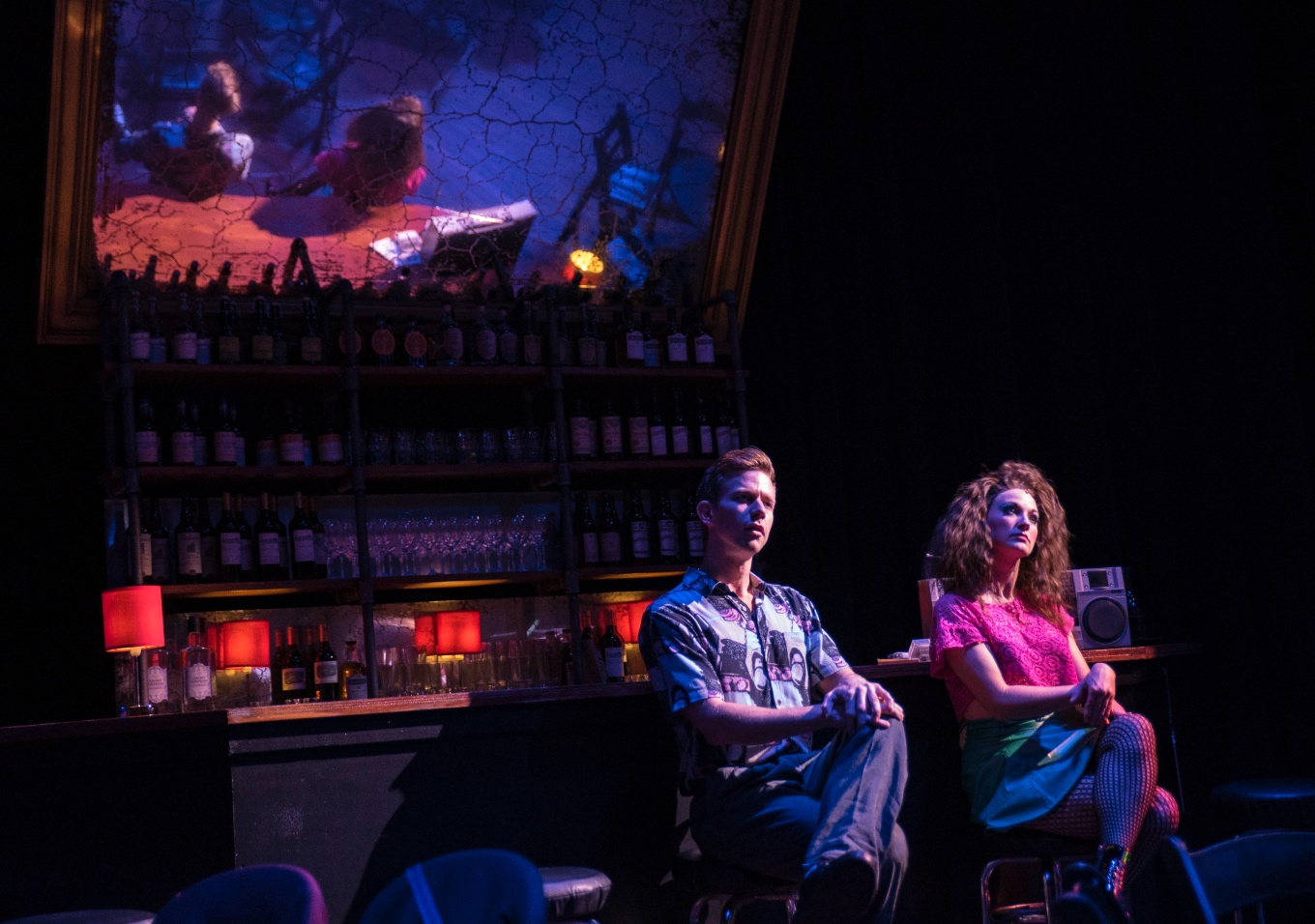
After intermission and a chance for patrons to refill their drinks, we reach the pièce de résistance of the night, La voix humaine. This opera by Poulenc, with a libretto by Cocteau tells a raw narrative of unrequited love. Even with the prologue, director James Darrah intentionally leaves much mystery surrounding the opera’s one character, Elle, and her phone conversation with an unknown lover. While the idea of reimagining La voix humaine has its creative appeal, this performance could have triumphed alone with no appendage.
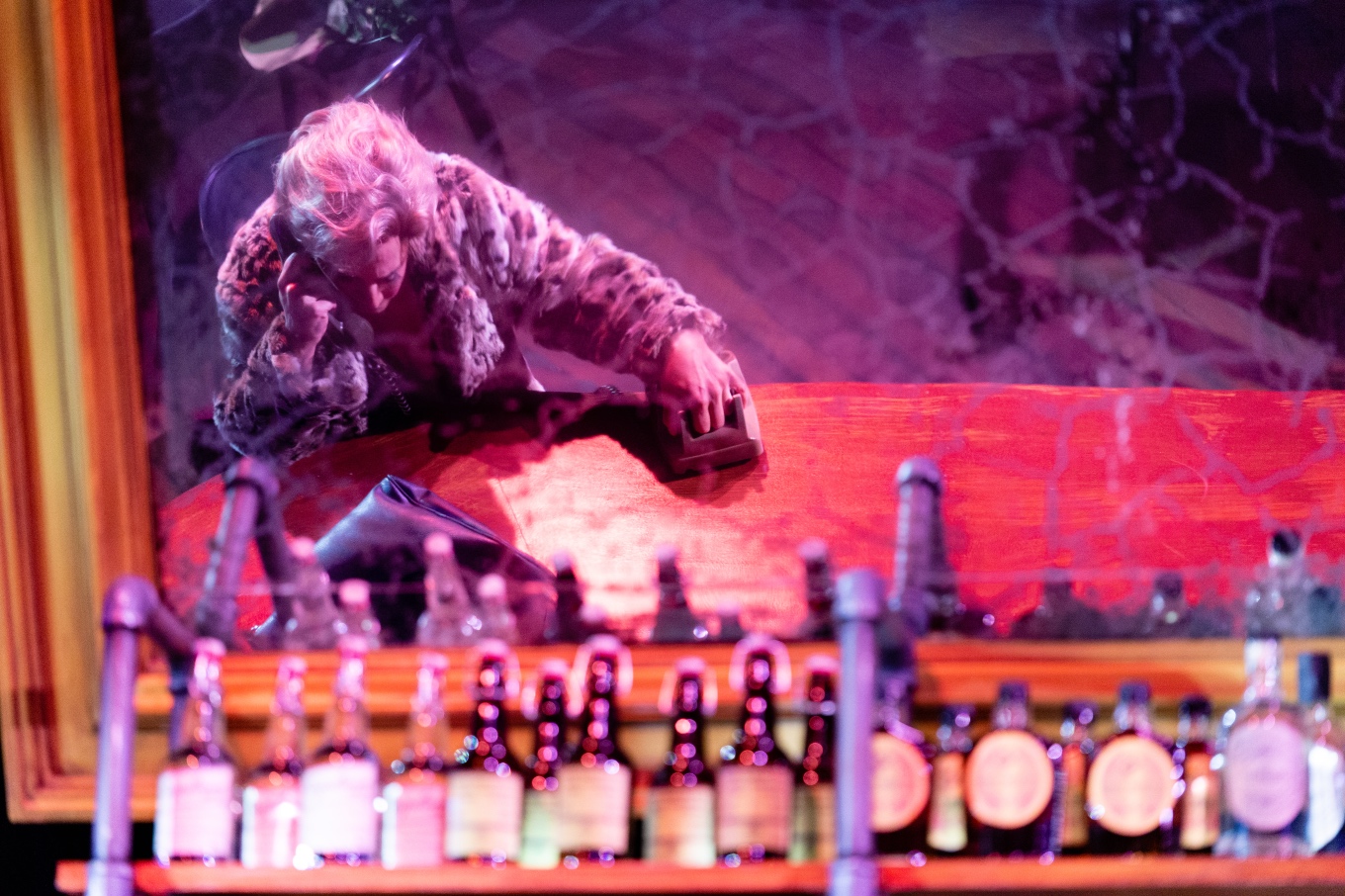
Soprano Patricia Racette’s portrayal as Elle in La voix humaine was the most thrilling performance of Festival O18 so far. Racette is irreproachable in her ability to command the stage. Her singing is sublime, full of color at every part of the range, and carries chilling emotion through every facet of her character’s journey. Her aspects of her presence are riveting, not just her singing. Every movement, breath, and look is of theatrical perfection. Delivering a one-person show is an arduous creative task to accomplish, and Racette does it with astonishing success. When the monodrama is finally over, it takes a moment to return to reality, as Racette has completely transported her audience to Poulenc and Cocteau’s world.
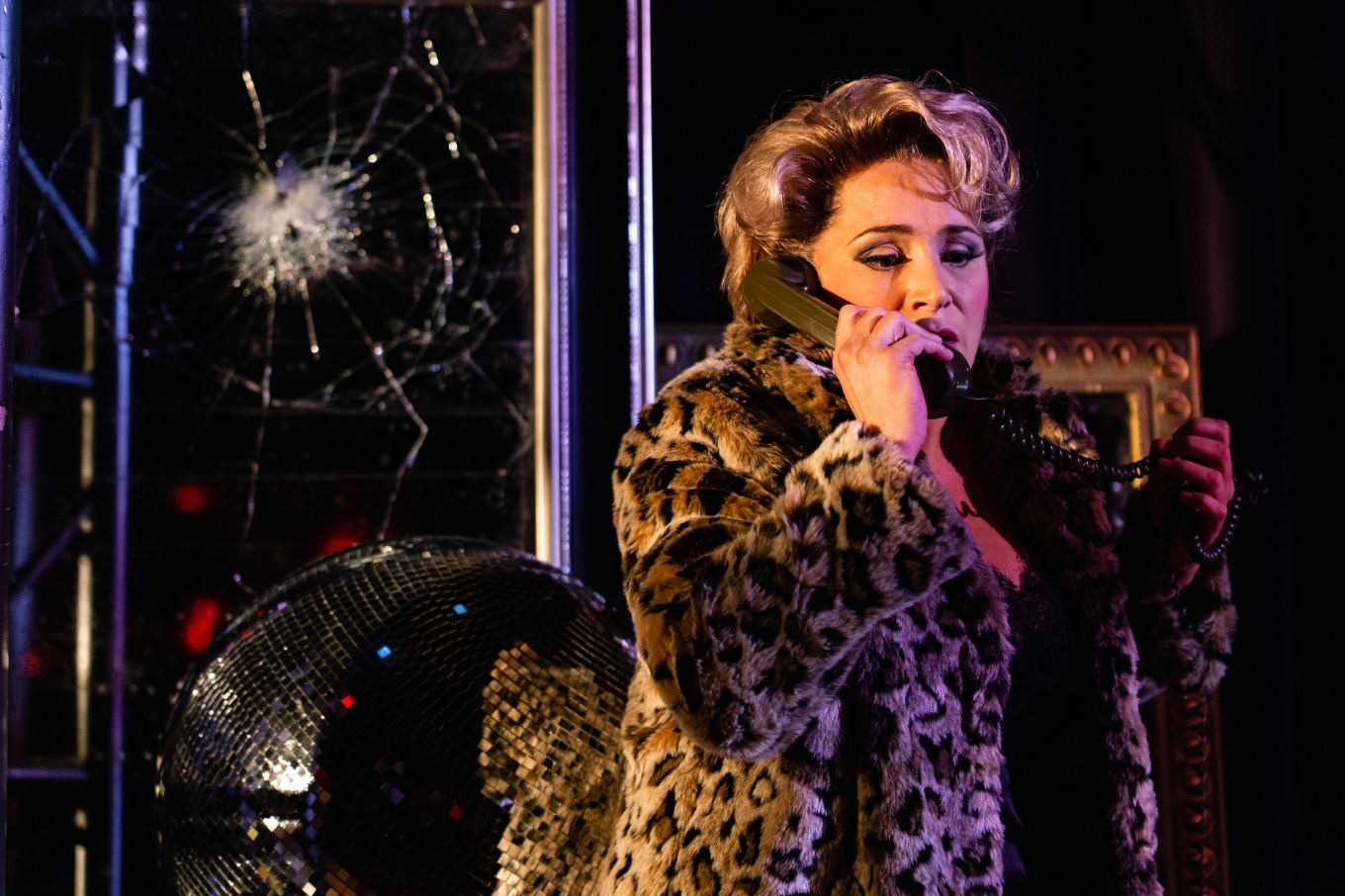
At equal partnership with Racette is Music Director and Pianist, Christopher Allen. His playing of Poulenc’s writing is superb. From the first tones of Poulenc’s Intermezzo No. 3 to the final sounds of the opera, each and every note was played with such clarity, command, and tenderness, that the audience is left unaware of the immense difficulty of the music.
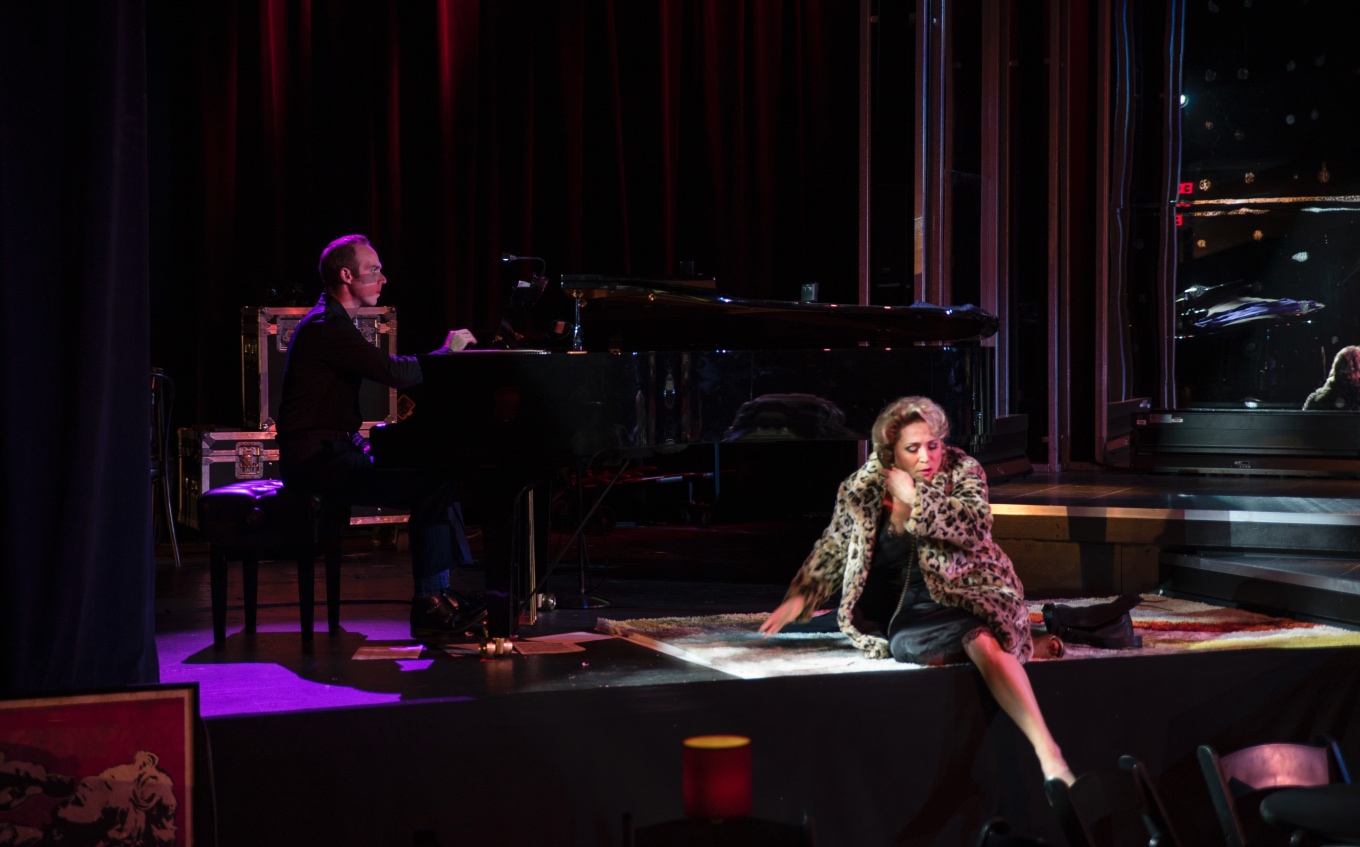
After attending Ne Quittez Pas, many questions linger in the mind, but there is no doubt Patricia Racette’s performance of Elle is one of the greatest operatic events of our time. If coming to Philadelphia for O18 is not possible, keep track of Racette’s schedule and do not miss an opportunity to see her in La voix humaine.


Comments